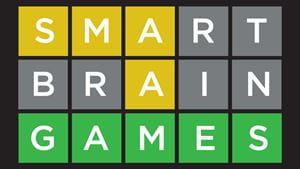
Each morning, millions of people around the world wake up and ask themselves one question: What is a good five-letter word I can use today?
That question is linked to Wordle, a popular online word game that entrances, challenges, and frustrates people on a daily basis. The game spurs the mind to think in ways it typically may not, which can improve our overall cognition.
Marla Bruns, MD, PhD, a cognitive neurologist and co-director of Rochester Regional Health’s Memory Center at Unity Hospital, gives insight into how this works.
The free online word game is immensely popular. Wordle is beloved for both its simplicity and its ability to force your brain to work hard.
Each day, a new puzzle is released. The solution is a five-letter word. Players have six opportunities to guess the word. With each word guessed, the letters in each guess are given one of three colors: grey, yellow, or green.
Grey: The letter is not part of the solution
Yellow: The letter is part of the solution, but in a different spot
Green: The letter is part of the solution and in the correct spot
Initially created by a Welsh software engineer, the game was purchased by the New York Times and has resulted in several spinoffs, including Worldle, Quordle, and Heardle.
Researchers who study cognitive behavior suggest people play any sort of game that both fosters critical thinking and is enjoyable to them personally.
For example, a study published in the International Journal of Geriatric Psychiatry found games such as Sudoku or crossword puzzles are good for building reasoning, memory, and attention skills. However, if you do these puzzles but do not enjoy them, chances are you are not going to continue doing them regularly and receive the benefits.
“If someone tells me I need to lift weights to get stronger, I will do it because I know it’s good for me,” Dr. Bruns said. “But if it isn’t fun for me, I might get bored after a while and stop. Then my arms will get weak again. Try to pick activities that are fun; fun is sustainable.”
The choice of which games to play is up to each individual. There is not a specific set of brain games that benefit people’s cognitive skills over another. In 2016, a company called Lumos Labs agreed to a $2 million legal settlement with the Federal Trade Commission over deceptive advertising claims made about a series of games it created to “sharpen performance in everyday life and protect against cognitive decline.”
Playing games like Wordle allows us to use the brain for dynamic activities, rather than something passive. Your brain is working harder when you focus on something that forces your mind to be operating continuously, such as a board game or a book. This is especially true when compared to a more passive activity, such as watching a scripted TV show.
A study published in JAMA Neurol showed individuals ages 70 and older had decreased mild cognitive impairment if they spent time playing games, crafting, using computers, or engaging in social activities compared to those who did not.
But even among the types of games we play, playing games alone has less benefit than playing games with others.
“Playing a round of Wordle has some benefit,” Dr. Bruns said. “But if you are playing a game of Scrabble with three other people, that will make your brain more active.”
Even better than cognitive group games are physical activities done as a group. Riding a bicycle or running is good for the body, but is usually done individually. Rock climbing with a group of friends, going on a walk or hike with another person, or playing a team sport such as basketball or touch football can be beneficial. Dr. Bruns herself enjoys ballroom dancing as a way to stay active and keep her mind engaged by learning choreography.
A 2019 study published in the Journal of Alzheimer’s Disease found moderately intense physical activity in older adults is “significantly associated with a decreased risk of incident dementia.”
Rochester Regional Health is creating more opportunities to promote brain health for senior citizens. A new Healthy Brain Aging program is scheduled to start in late April and will last for 9 weeks.
Designed as a small group, the weekly program meets at Unity at Ridgeway and is made for older adults who want to learn and experience a variety of physical, cognitive, and emotional/mindfulness strategies. The goal is to empower members of the group to compensate for memory and other cognitive changes and improve functioning.
To learn more about the Healthy Brain Aging program, contact Crystal Malec at (585) 723-7972 or email crystal.malec@rochesterregional.org.